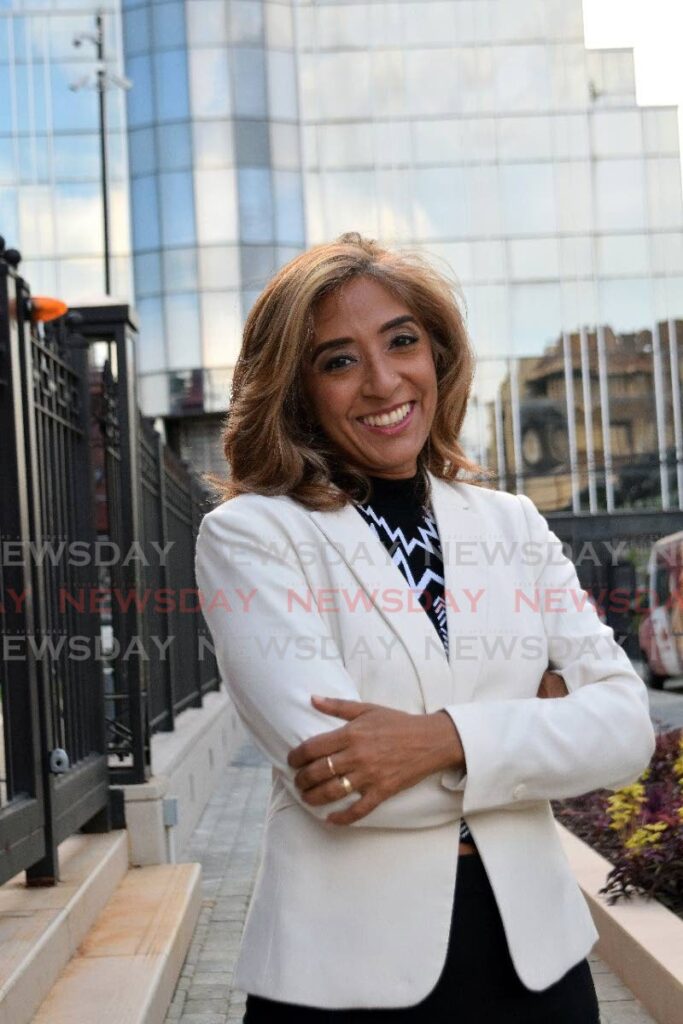That's not correct

DR GABRIELLE JAMELA HOSEIN
FOR MORE than 20 years, I have been learning about sexual and reproductive health and rights information and services, and their value.
They can help women and men to choose when and by how much they grow their families. They can protect children from child sexual abuse, unwanted and early sex, relationship violence and unplanned pregnancies.
They are critical for reaching those who experience discrimination because of their class, ethnicity, disability, gender identity or sexual orientation, and cannot access healthcare that respects their rights and dignity.
What I’ve learned is that facts and data are key.
There are decades of research that show the benefits of family planning. Across the region, there is also overwhelming data that health and family life education (HFLE) programmes and comprehensive sexuality education (CSE) (and the two are not the same), enable adolescents to understand their bodies and reproduction, delay sex and pregnancy, identify and disclose sexual abuse and sexual violence, and better negotiate contraception and sexual safety when they are ready to consent to love, sex and intimacy.
These are also the only programmes that provide trusted adults who can provide answers to adolescents’ questions about their bodies, desires and fears, and correct myths they may hold about sex, power and relationships, when the majority cannot openly speak with their parents or may be in abusive families and turn instead to their peers and the internet.
Speak to teachers about HFLE and hear their stories about how much such a national curriculum is needed, and the trauma, violence and unhealthy sexual experiences they are encountering among students every day.
Thousands of children report child abuse every year and thousands more are in violent homes. The innocence of childhood is a myth for those most vulnerable. Today, we understand the value of teaching about “good touch” and “bad touch” in age-appropriate ways and from preschool. Similarly, it would be irresponsible of the State to not have such educational programmes in place for children and their peers.
In every country in the Caribbean where they are actually asked, adolescents want these programmes and speak about how they would help them to better understand themselves, their peers, adults and their families, media messages, and the world around them. These are quite simply the facts.
In contrast, as I’ve written about before, those who oppose comprehensive sexuality education appear continuously willing to misinform the public.
The latest videos circulating feature Umar Abdullah boycotting the International Planned Parenthood Federation (IPPF)’s office. He and his supporter describe IPPF, whose mandate is to “ensure people are free to make choices about their sexuality and wellbeing, in a world without discrimination,” as trying to take the souls of children, promoting eugenics (think of the Nazis), legalising paedophilia, promoting socialism, turning children into sex objects, bowing to Satan, stopping boys from being boys and girls from being girls, and trying to trade in body parts from foetuses. Such insanity would be laughable if it were not so seriously believed.
All these accusations are completely untrue. They do not reflect Caribbean history or reality. They mislead about SRHR information and services that actually help protect people, particularly women and children. In these decades and in my own research, I have never encountered anything of which IPPF is being accused in TT.
More disappointing, because until now I thought he could be relied on to be careful with truth, was another video circulating where Archbishop Jason Gordon accuses the UN of pushing Caricom to approve of children’s right to change their gender identity, forcing parents to lose their right to parent their child and to lose moral authority over their family. Gordon goes on to accuse CSE of stimulating and encouraging children to experiment sexually.
Again, none of this is true. Gordon also seems to have no clue about why there are necessary efforts to provide access to age-appropriate information to protect adolescents today.
Unlike the archbishop, I actually have a 12-year-old, and I want her to have access to information that she or her peers may need, and it’s absolutely essential that it be considered a rights- and youth-sensitive national approach to public health.
If you want to know the approach that is guiding advocacy for CSE, start by reading the International Technical Guidance on Sexuality Education: An Evidence-Informed Approach published by UNESCO in 2018.
Fear-mongering is not in children’s interest nor does it protect children’s rights.
Diary of a mothering worker
motheringworker@gmail.com
Entry 480


Comments
"That's not correct"